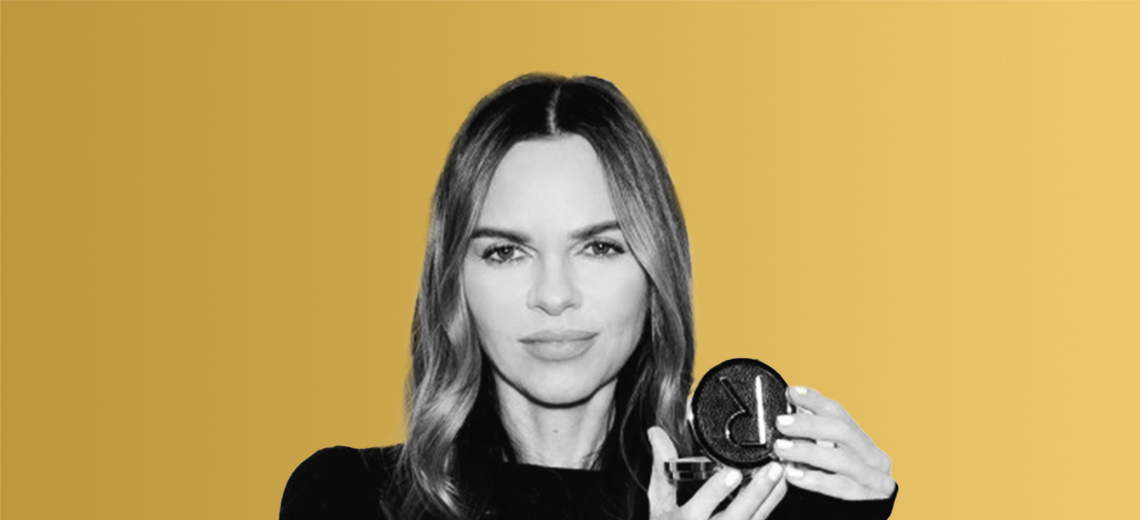This is an episode of the Glossy Beauty Podcast, which features candid conversations about how today’s trends are shaping the future of the beauty and wellness industries. More from the series →
Subscribe: Apple Podcasts • Spotify
Running two beauty businesses without outside funding is no small feat, but Maria Hatzistefanis, founder and CEO of Rodial and Nip+Fab, is making it work. And her businesses are thriving.
Hatzistefanis launched the luxury skin-care and makeup brand Rodial in 1999, after being fired from her investment banking job in her early 20s. She went on to launch Nip+Fab in 2010. Now best known for its bestselling Glycolic Fix product range, Nip+Fab was originally meant to be Rodial’s more accessible, mass-market little sister.
“My idea [for both brands] was to come up with products that would give you instant and long-term results,” Hatzistefanis told Glossy. “I had a passion for researching ingredients that no one else was using.”
Today, both Rodial and Nip+Fab are sold in over 10,000 stores across 35 countries. Rodial is distributed in luxury department stores, including Harrods, Selfridges and Blue Mercury, while Nip+Fab is available at Boots and JCPenney. “We have been growing double-digits year-over-year, for both brands,” Hatzistefanis said. “Plus, profitability has been a driver of our business, and we’ve always been profitable.”
On this week’s episode of the Glossy Beauty Podcast, Hatzistefanis discussed the ins and outs of running a business for over 25 years and the next stage of growth for Rodial Group.
The excerpts below have been slightly edited and condensed for clarity.
The benefits of self-funding
“Over the years, [Rodial Group] has been approached by various companies and trade buyers interested in investing in the business or buying the business. We’ve never had a proposition that was interesting enough for me to take the job because I’ve always been used to doing my own thing and not having to report to anyone. … Sometimes decisions I’ve made were not decisions that an external investor may not have agreed with. But I know deep down what’s right for the business. When you don’t have external investment, that means you can only reinvest in the business. You can reinvest the profit, but you cannot invest more than that — which means you can’t really drive the business to grow by 50% every year. That is impossible if you don’t have a massive marketing budget, but that also allows you to be a lot more flexible. You can use guerilla marketing tactics or other ways to drive that revenue. That ROI has to be there, so you’re taking risks and doing whatever you can to grow brand awareness while keeping in mind that you have to be profitable. It’s a balance between growing but not to the point that we cannot support it. For that reason, we have not accepted external investment, and we have still been able to be profitable year after year.”
Keeping the brand fresh
“With Covid, we had to start thinking in a different way. We were historically a classic PR brand — classic PR through magazines and online articles and store events was at the core of our business. With Covid and [the rise of digital], we had to quickly move to a DTC format and then embrace digital in a bigger way, whether that was by working with influencers or investing in paid social media campaigns. We had to quickly learn all of that. Now, we’re moving into a new stage, and there are a couple of different things we’re doing. One is that we’re cultivating micro-communities in real life by organizing smaller events. We bring a group of women together as part of our customer base, whether it’s in New York, London, L.A. or Milan, and we create networking events and we tell our story. The other thing we are working on is bigger activations, and when we have a product launch, we now give it a moment. … It’s as though we’re saying, ‘We’re offering an experience — come share it with us. And if you love it, you can post it on Instagram and tell your friends.’ That’s where the word of mouth starts. I’m excited about this new stage.”
Ushering in the next phase of growth
“We’re going through an interesting stage right now with Rodial. The times that we’v grown were the times that I brought some new people into the business. A few of our team moved on in the last few months, so this is an opportunity to look again at the leadership team and think, ‘Who do we want to be, and who they want to bring on board?’ I’m heavily recruiting in some key areas right now and bringing a different profile of people on board. [There are] fresh ideas, different experiences and a lot of diversity in the people we bring in, and that’s where the growth happens. The team is the single most important thing, so with the new team coming on board, there are gonna be a lot of brainstorming meetings and a lot of excitement, plus a focus on challenging the ways we’ve been doing things and looking at how we can perform in a different way. … When we get the team in place and we move to the next phase of Rodial , … it will be a very interesting year.”




